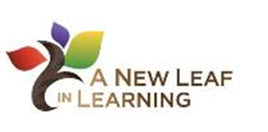 |
| http://bit.ly/NLIL12ebooks |
2012 New Leaf in Learning Birds of a Feather Round Table discussion
eBooks – Where to Begin?
In preparation for our conversation, eBooks – Where to Begin? at Follett’s user conference, New Leaf in Learning, I opened a discussion in the professional learning community I facilitate at edWeb.net, Using Emerging Technology to Improve Your School Library Program, a few weeks ago.
The
list oversimplifies pages and pages of dialog, but helps to chunk the
conversation for the purpose of our birds of a feather discussion.
This conversation doesn't have to end here:
- Please contribute to the document outlining today's discussion.
- On Wednesday, April 11, at 5PM, EST, I will host an edWeb.net webinar on this topic: eContent delivery (revisited): eBooks, eCollection, digital resources, & eTextbooks. Attendees are always encouraged to participate in active discussions during those webinars. Link to webinar.
- The discussion thread I opened for this conversation is still, and will continue to be, live. Please add your ahas from today, and new information as you grow your digital collections.
1. Why eContent? - Yes or no?
Is eContent necessary in a 21st Century library? How do you know? Can a Learning Commons exist without eBooks?
2. Who are the stakeholders?
This
is not your mother’s library! Remember back in the day when librarians
were in charge? HA! Look at all the stakeholders we have now! Who are
you including in your decisions? Or - and this is probably the more
pertinent question – how many of these stakeholders are driving your
acquisitions decisions?
- distributors
- publishers (some are starting to withhold typical consumer services - like acquisitions - from libraries [i.e. Harper Collins, Penguin, etc.])
- authors
- librarians (community, academic, and K-12)
- teachers
- curriculum leaders
- students
- parents
- community members (taxpayers)
- education policymakers (admin & bd. of ed)
- regional educational associations (i.e. BOCES)
- consortia
3. What should we acquire? - Selection
- Is format a factor?
- What should you buy first? Existing print titles or new materials?
- What’s in a package?
- In this new landscape, where does the librarian fit in to the textbook conversation? And this is probably the more pertinent question why are we still having the textbook conversation?
- Curriculum v. library budget?
- Free v. paid? Should cost be a factor - not too high because that makes sense, but too low? How much free content is in your collection?
4. How should we acquire it? - Access
- Downloadable v. browser/controls/permissions/lending rules/ePub/iBooks/Amazon
- Management: Cataloging/Lexiles/Common Core/MARC records
- Distribution practices/ Acquisitions models/Licensing/Leasing/Portals/ILS/intended users/Kickstarter model/consortia
- Devices/apps/accounts – circulation?
- Circulation/promotion/gadgets/widgets and apps
- In ILS, should ebooks be integrated with print titles?
- Promoting usage among patrons
5. How can we distribute it? - Dissemination
- 3M
- ABC-CLIO
- Amazon
- Barnes and Noble
- Biblio
- Capstone
- DK
- Follett Library
- Grolier
- INFObase
- Lerner
- Macken
- Marshall Cavendish
- Overdrive
- ProQuest
- Rosen
- Salem
- Scholastic
- Sharpe
- Publishers who withhold consumer services from libraries
- Authors
6. How do we know it’s valuable? - Assessment
Can/should we assess the impact of format on learners?
Can/should we assess the impact of format on learners?
- Are learners “format blind”?


No comments:
Post a Comment